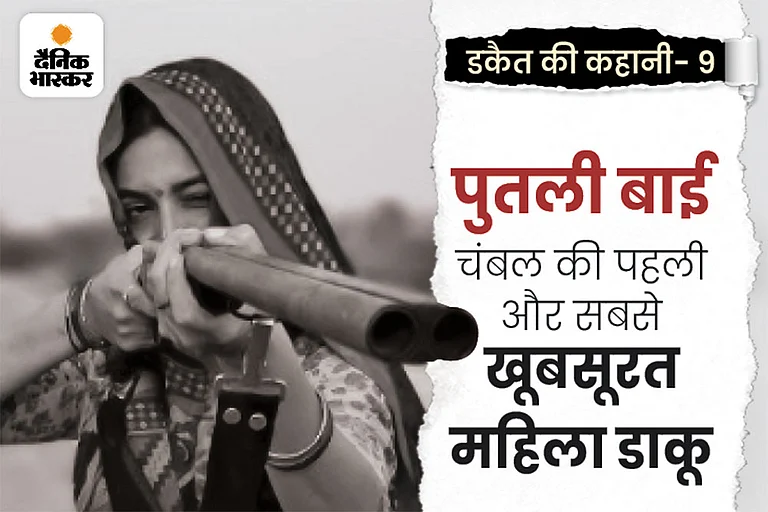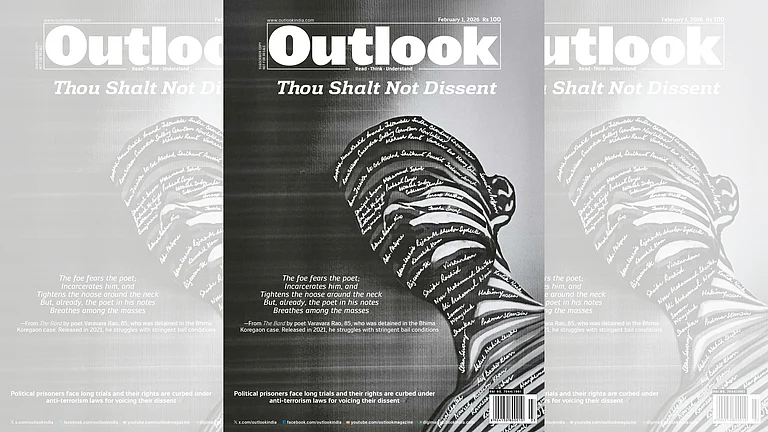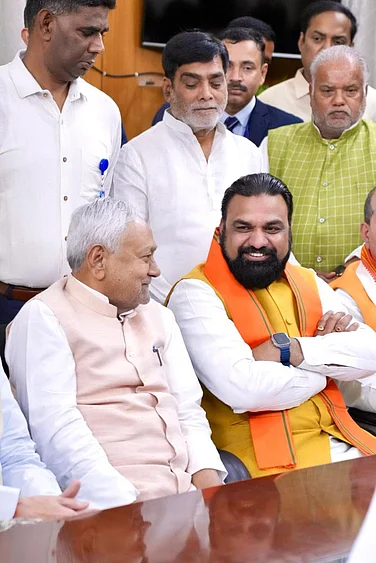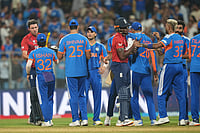While international conventions call for restraint, and the Indian Constitution promises equality before the law, the death penalty continues to expose deep fault lines in the country’s justice system. Public opinion in India often leans in favour of capital punishment, particularly when media coverage sensationalises crimes or appeals to emotion. In such a climate, the death penalty becomes not just a legal tool but a symbol of retribution.
Yug Mohit Chaudhry, a Mumbai-based criminal lawyer and one of India’s most prominent voices against capital punishment, explains why executions are overwhelmingly imposed on the poor, why international legal obligations are often symbolic, and how the very structure of the system makes death row a space of prolonged cruelty. He also warns of the dangers of media-driven outrage and explains why the abolition of the death penalty is ultimately a test of a society’s commitment to justice, not vengeance. Excerpts from an email interview with Saher Hiba Khan.
Q1 India is a signatory to the International Covenant on Civil and Political Rights and is obligated by Article 6, which protects the inherent right to life, even though it does not abolish the death penalty. Can such international legal obligations be meaningfully used to push for reform or eventual abolition of capital punishment in India?
These international instruments never had any practical value or application, particularly in the case of capital punishment. If a nation wants to retain the death penalty, it can ignore the Second Optional Protocol. When a nation is ready to abolish the death penalty, it, of course, invokes its international obligations under the very same protocol. International instruments, especially of the optional or non-binding variety, come into play in a practical way only when they are not really needed, i.e., only when there is a groundswell supporting abolition, or when the government decides to do it.
Q2 How much does poor legal representation contribute to death penalty convictions in India, and is it true that many of those on death row come from marginalised communities who couldn’t afford proper defence?
Poor legal representation is the single largest contributory factor to the infliction of capital punishment on a prisoner, and in terms of potency, is far more significant than the crime itself. This explains why capital punishment is only inflicted on the poor. This discrimination has become so rampant and obvious that one may say that capital punishment is a punishment reserved for the poor. It is easier for a camel to pass through the eye of a needle than for a rich and powerful man to be inflicted with capital punishment. People are sentenced to death for the crime of being poor, not for the crime they may have committed–as they say in America, those without the capital get the punishment.
Q3 Is it possible for the families of victims, and sometimes survivors, whom we have often seen demand the death penalty for the accused/convict, to not do that? Can they, too, say they do not want the death penalty?
Yes, it is possible for victims to eschew the death penalty, and in fact has been done in many cases, such as the Rajiv Gandhi assassination, the Graham Staines murder, etc. It is a matter of education and social conditioning. In a country like India, where there is so little value for life, where the state itself (through the police and armed forces) indulges in lawless extra-judicial and legally unsanctioned killings and torture, citizens will naturally demand this extreme punishment as retribution for wrongs done to them. It is a quick and rough justice which slakes the thirst for vengeance. The state has to first set an example if we expect victims of crime to reject the option of capital punishment.
At the same time, one has to understand that it is impossible for a victim of a crime to be objective about how and to what extent the culprit should be punished. Therefore, it would be hazardous to leave the choice of punishment to a victim. The issue of punishment has to be objectively debated and dispassionately decided. It is too much to expect this of a victim, and therefore, though legal systems do provide space for the victim's voice in the sentencing exercise, the decision is not left to them.
Q4 Who brings change: the government, activists, the media? But which of these has hurt the cause of ending the death penalty in India?
Change usually comes through education and awareness. Sometimes it comes through cataclysmic events, such as the discovery that a person who was executed was actually innocent. Governments have used capital punishment to distract attention from the real issues, namely, the causes of crime, what can be done to prevent or reduce it, etc. By resorting to capital punishment, governments try to show that they are tough on crime, when in fact, systemic crime prevention has been very low on the agenda. In India, one has to merely see the mismatch between the righteous indignation, horror and promises articulated by politicians after the Nirbhaya episode, and the little that successive governments have done to reduce crime against women, even though they were given an excellent blueprint in the Verma Committee Report.
The sensationalising of crime and punishment by the electronic media in a bid to garner more TRPs has had a very deleterious effect. It has turned capital punishment into a spectacle, where mock executions and make-shift gallows are erected in studios before each hanging. Capital punishment has become entertainment when it should be a moment for us all to ask ourselves whether we want such killings to take place in our names.
Q5 Is it possible to revisit cases of the death penalty to now establish how judicial reasoning and "public morality" change with circumstances, and hence, one cannot justify taking a life, which can never come back?
This has been done in the UK after it abolished capital punishment by awarding posthumous pardons to those wrongly sentenced to death, and if we were to someday abolish capital punishment, we may do it too.
Q6 How can we fight the public support often seen for the death penalty? Can religion, faith, offer a way out, at least philosophically? Would this help by showing people they are not practising what they preach?
Education and awareness are crucial to changing public opinion. Religions usually preach non-violence, compassion, etc and are therefore important.
Q7 Outlook recently interviewed Professor Anup Surendranath on this issue, and he pointed out that being made to wait on death row is unbelievably cruel. Would you agree? What can be done about this?
Delay in execution while a prisoner is languishing on death row, swinging between hope and despair, and fixated on the image of himself swinging from the end of a rope, is an unavoidable cruelty built into the system of capital punishment. It can only be cured by abolishing capital punishment itself.























